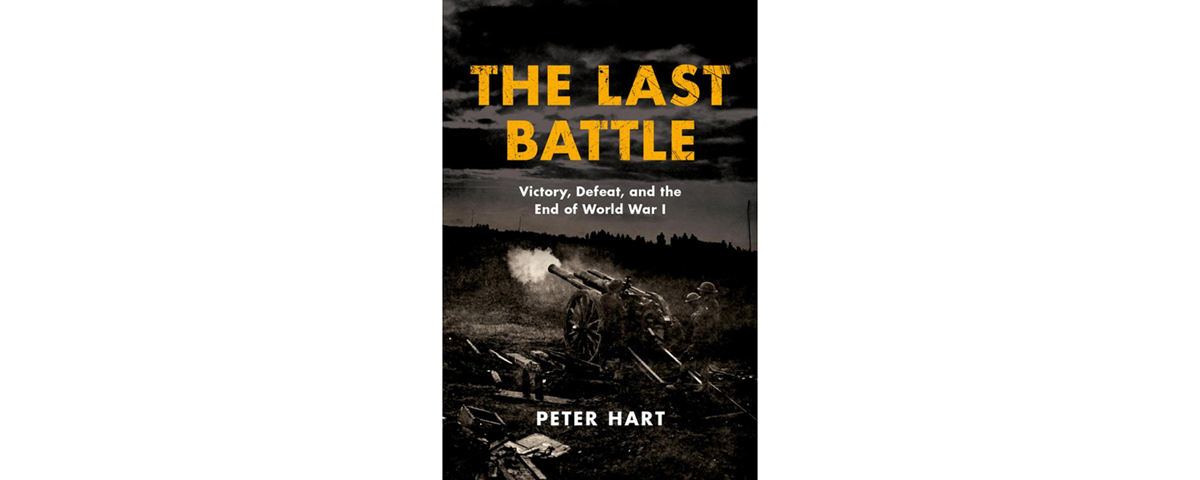The Last Battle: Victory, Defeat and the End of World War I, by Peter Hart, Oxford University Press, New York, 2018, $34.95
Compared to how wars ignite and the winding, grisly trails they follow as their deadly fires burn bright and hot, the final stages of a conflict can seem anticlimactic. But in his new book British historian and author Peter Hart makes the end of war his fascinating focal point by examining the final six weeks of World War I—a complex tapestry of carnage involving multiple belligerents with overlapping and often competing goals.
Hart, oral historian of Britain’s Imperial War Museum and author of several previous works on World War I, again lets his fluency in oral history shine. Myriad participants, from low-ranking troops to senior commanders, speak through direct quotations from journals, diaries and other sources, many never before published. Framing these gripping recollections within the context of his own subject-matter expertise, Hart weaves a tale both intimate and sweeping in scope.
The narrative swiftly builds momentum when Hart details the November 4 Battle of the Sambre, a huge clash of arms involving multiple divisions along a 20-mile front.
The emotional resonance of the massive encounter is amplified by the fact that although Germany’s formal capitulation was still two weeks away, the war’s outcome was decided. The men still being ordered into the breach fully recognized taking a fatal bullet at that point would constitute the ultimate cosmic irony.
Once the guns did fall silent, the weary survivors were quite surprised to still be drawing breath. As Australian Major Wilfred House wrote: “I remember thinking, ‘It’s all over!’ And to my complete amazement, ‘I am alive!’ I had always taken it for granted that I shouldn’t be.”
Generously illustrated with battlefield maps and photos, The Last Battle offers a poignant, fast-paced account of the last gasps of the war through the eyes of those who fought it.
—Chuck Vinch





